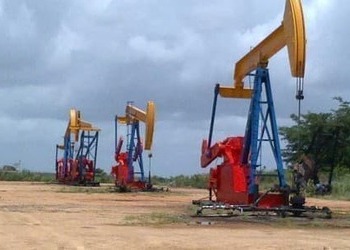Venezuela’s oil industry is beginning to make a muted recovery and the country’s black markets are reacting fast, with domestic fuel already starting to compete with smuggled Colombian imports.
Fuel smugglers on the Colombia-Venezuela border, who have been smuggling oil into Venezuela for the past few years to ease the country’s fuel shortages, now face reduced profits as Venezuela’s oil industry makes a partial recovery, Reuters reported on January.
One driver who takes passengers across the border from the Colombian municipality of Maracaibo to the Venezuelan state of Zulia told Reuters that “bringing gasoline from Colombia to sell here in Zulia isn’t viable, it doesn’t turn a profit.” In Zulia, Venezuelan gasoline costs $0.5 per liter while the same quantity of oil costs $0.6 in Colombia.
Also speaking to the news agency, a black-market vendor, identified only as Gustavo, said it was cheaper to buy gasoline from those in Venezuela who receive a quota of government-subsidized oil than to import it from Colombia. “It costs us practically nothing,” he said.
SEE ALSO: Despite Vast Oil Reserves, Venezuela Smuggling Gasoline From Colombia, Brazil
Venezuela has witnessed numerous reversals of the flow of contraband oil from within and outside its own borders. In recent years, despite the country having the largest oil reserves in the world, the collapse of Venezuela’s oil industry had seen Colombian and even Brazilian oil pouring inward.
Yet in 2021, the country’s domestic production showed signs of life. According to the most recent monthly report from the Organization of Petroleum Exporting Countries (OPEC), the world’s most oil-rich nation closed the year churning out 871,000 barrels per day.
That output more than doubles what Venezuela was producing at the same time last year and closed out five months of consistent growth, according to Trading Economics.
At the same time, Colombian oil has steadily ticked up in price, reaching $0.61 in January 2022 and making the subsidized Venezuelan option more attractive. The confluence of these two realities is pushing the well-established Venezuelan oil smuggling market to readjust once again.
InSight Crime Analysis
Smuggled oil has long been a lynchpin of other illicit economies in both Venezuela and Colombia, maintaining illegal gold mining operations and feeding coca paste processing.
In recent years, however, as fuel shortages have become an unfortunate staple of Venezuelan life, the black market for oil has increasingly gone towards providing basic necessities like cooking oil for Venezuelan families.
SEE ALSO: Metal Hands and Rubber Feet: Colombian Guerrillas and Venezuelan Gold
In 2020 and 2021, those networks were supplied by smuggling of oil from outside Venezuela. But even a relatively minor boost in domestic production could have smugglers abandoning Colombian gasoline for Venezuela’s once again.
However, the future remains uncertain. While Venezuela’s state-run oil company Petróleos de Venezuela (PdVSA) dramatically increased output in 2020, largely with technical and financial support from Iran and China, this growth may not be able to go on for long due to the huge investment required to continue. Former PdVSA executive and energy consultant, Juan Szabo, expressed doubt to Reuters that the country could keep pumping out oil at this rate.
“Stars would have to align this year for PdVSA to maintain production levels seen in recent months,” stated Szabo.

